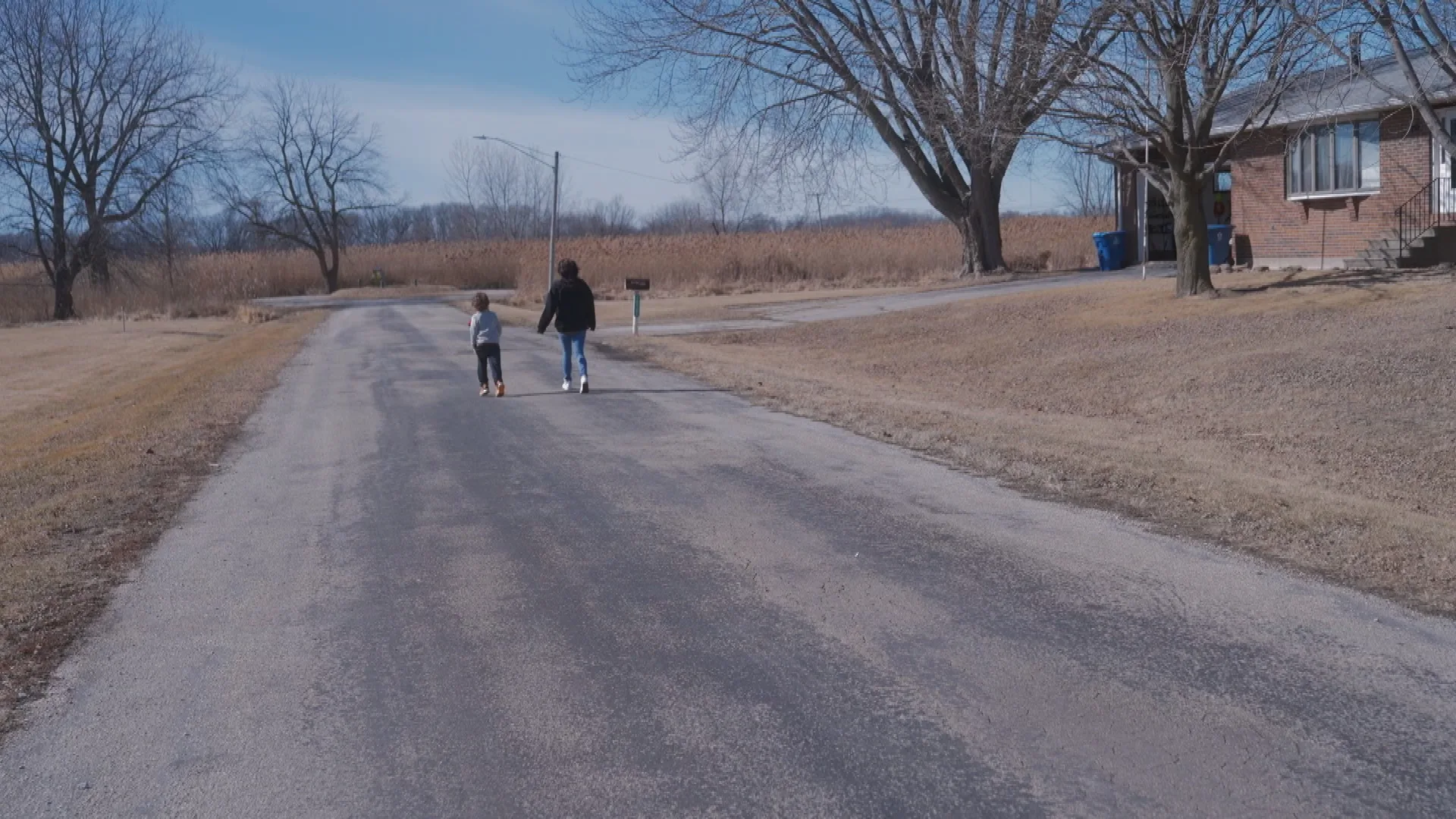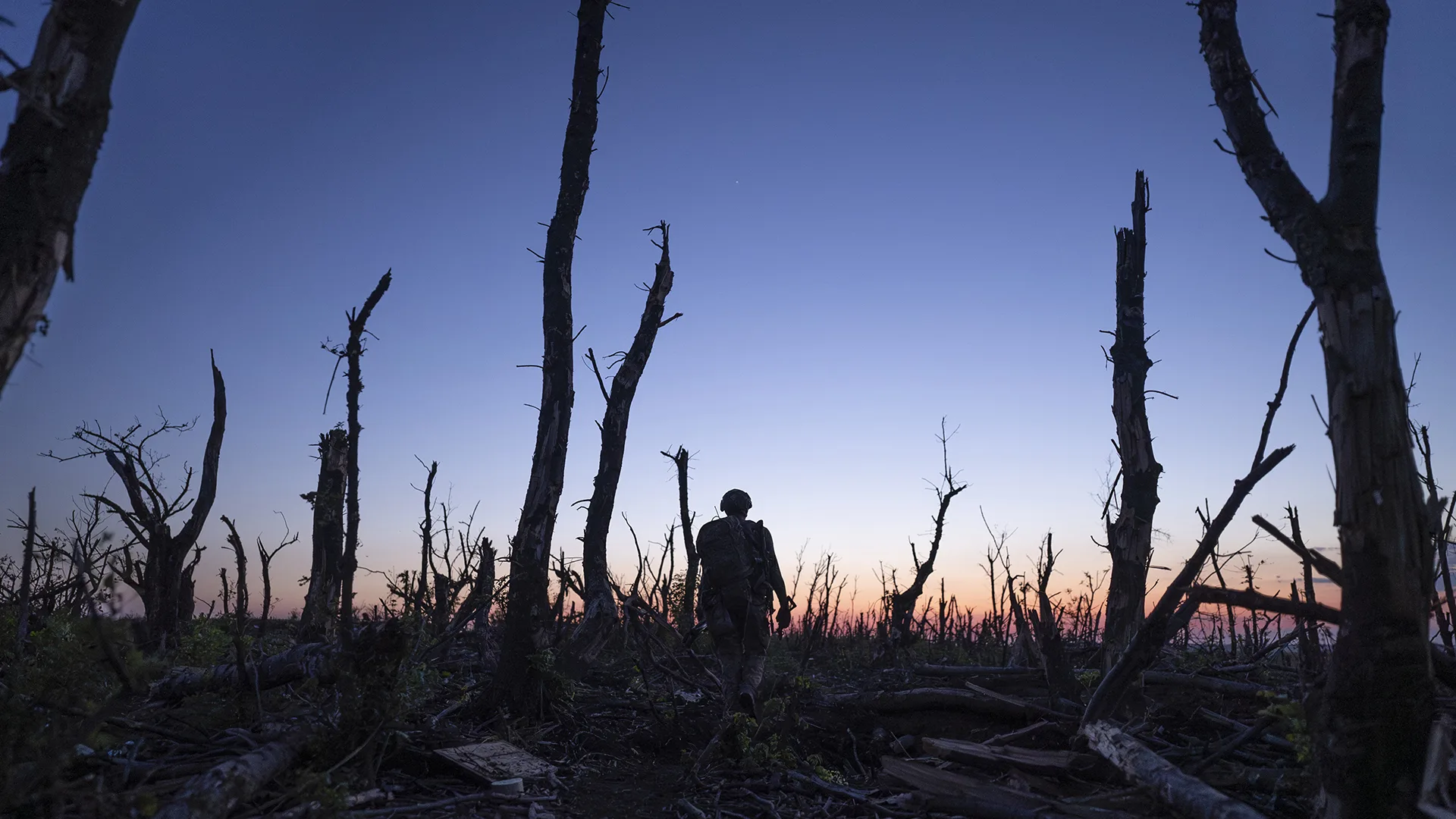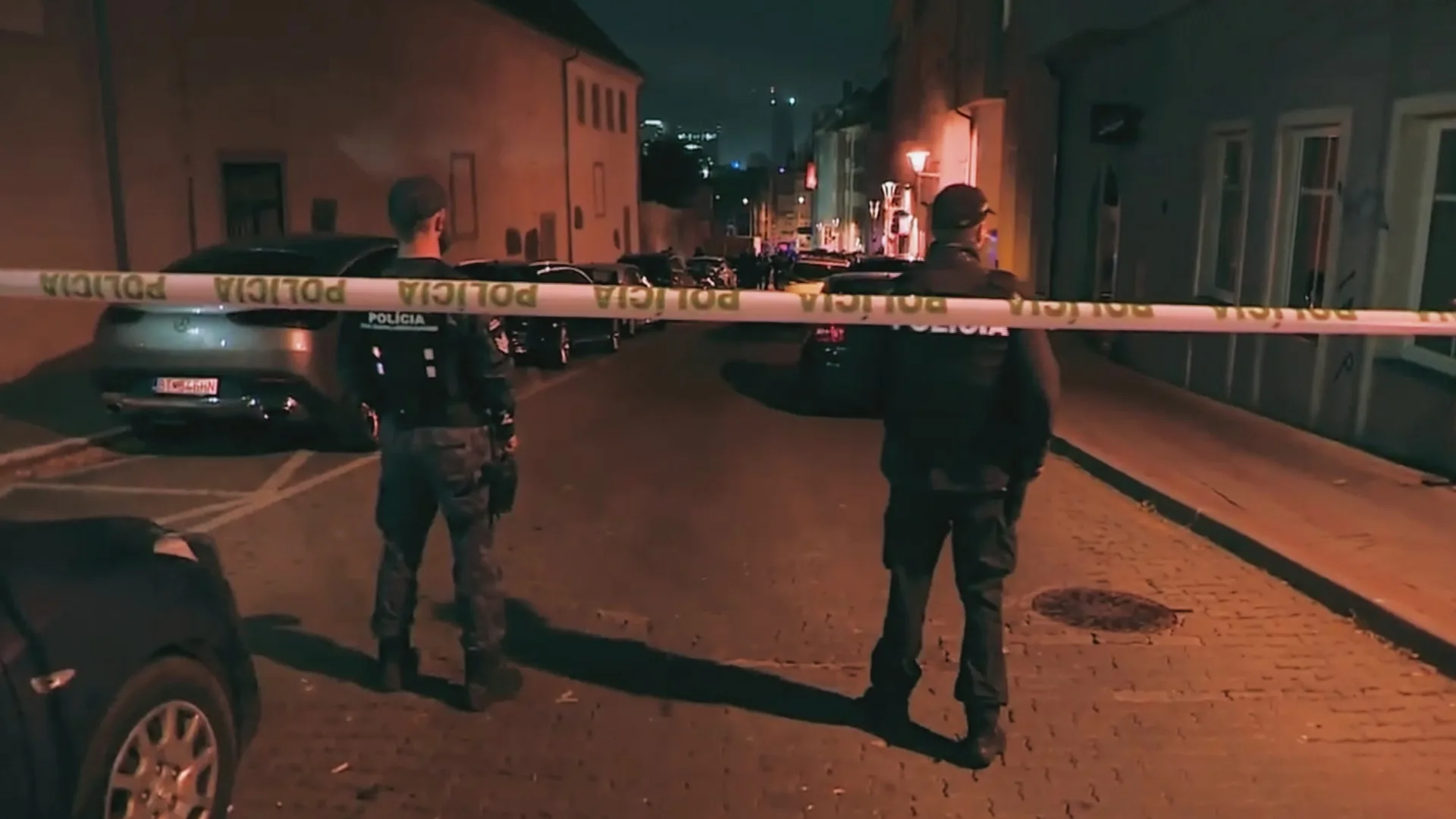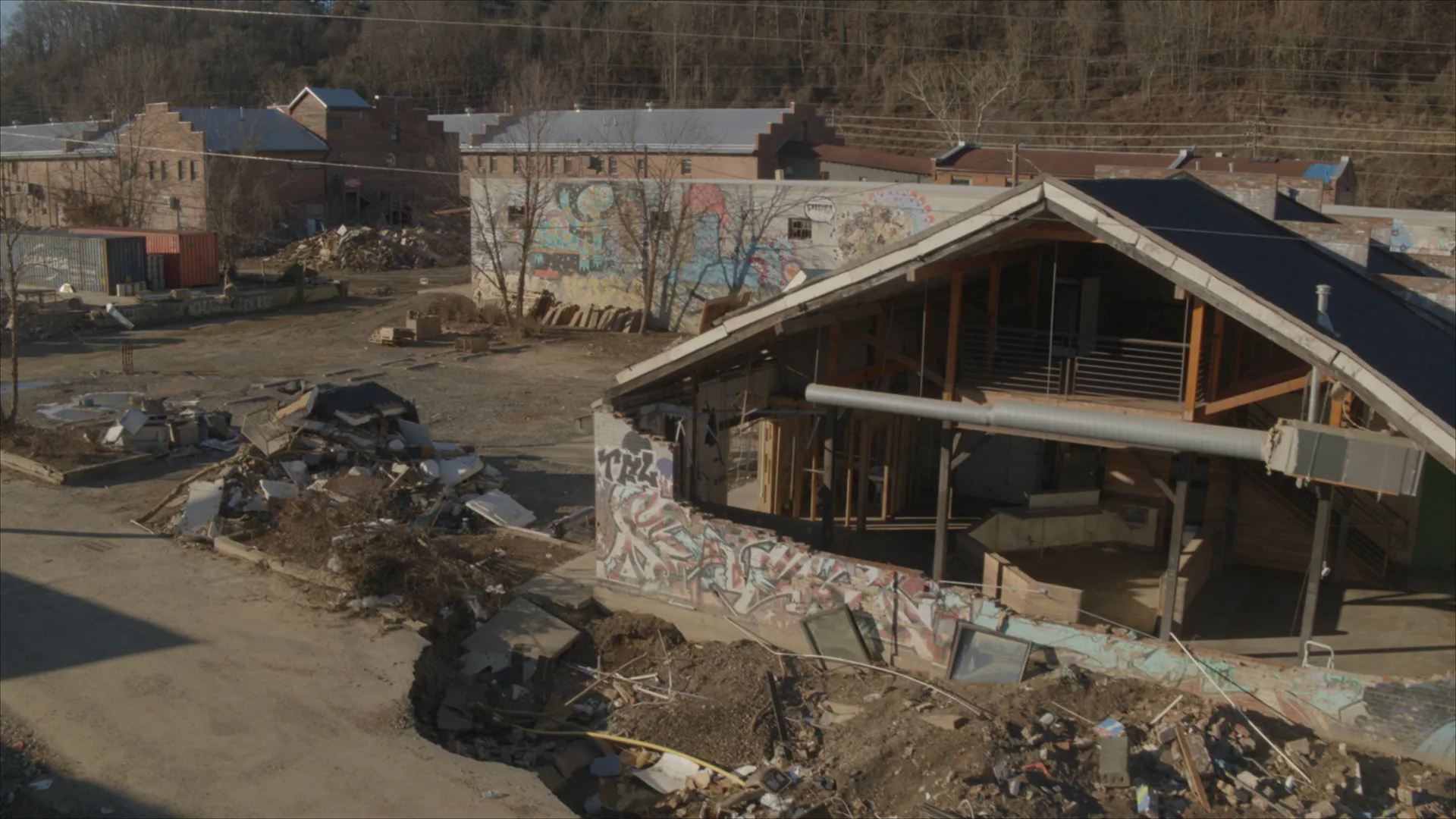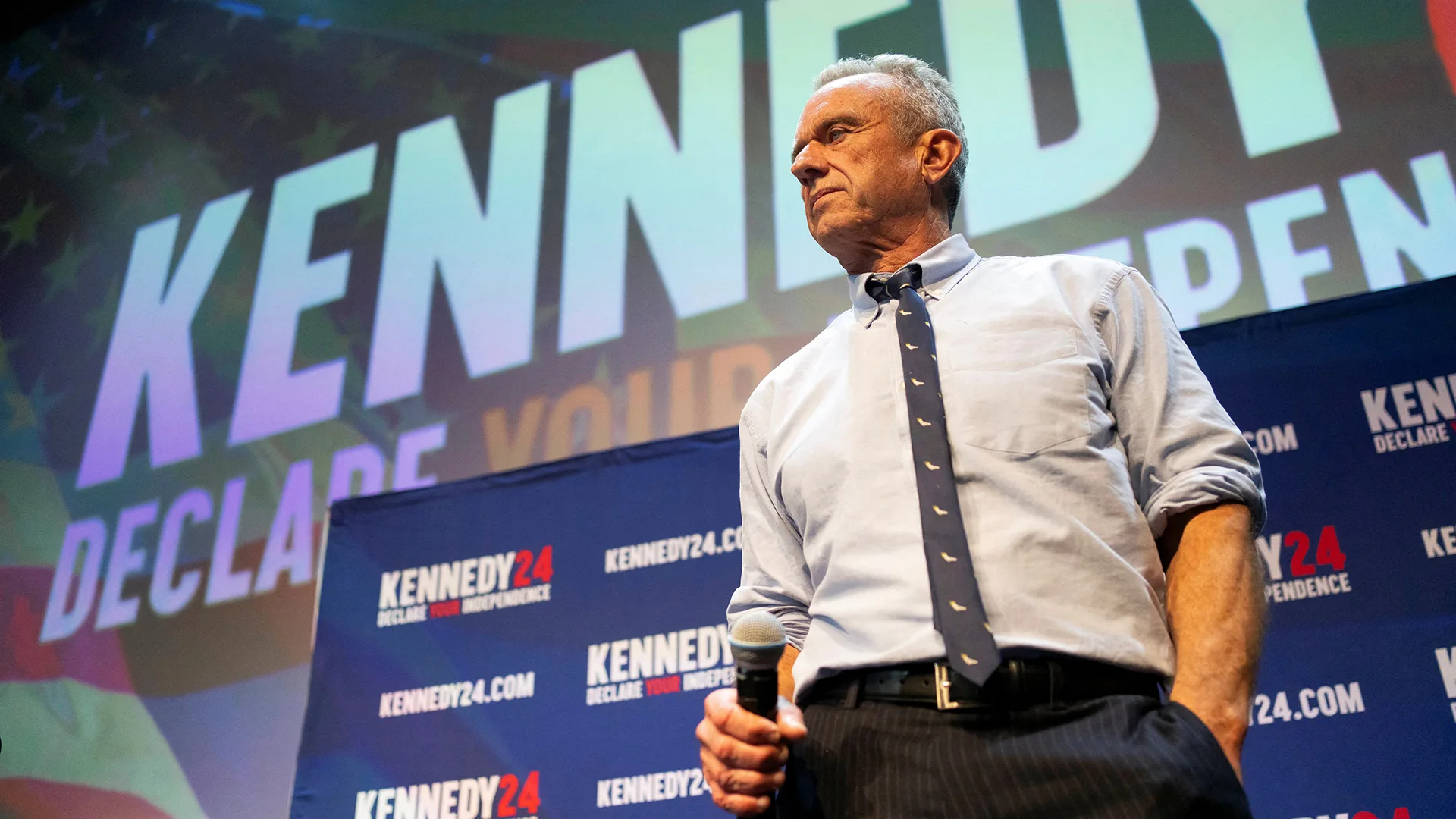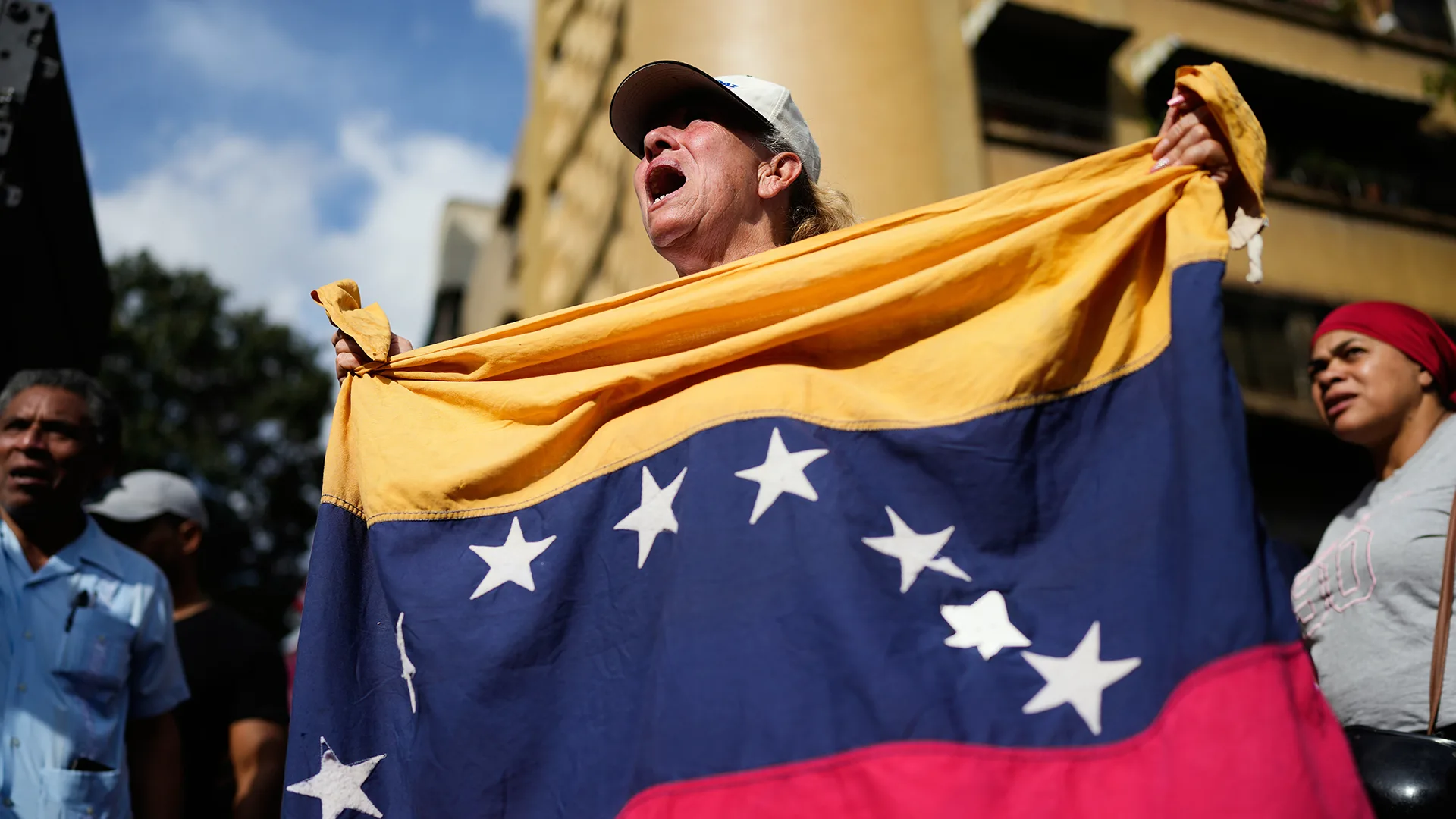After Zero Tolerance
December 6, 2022
28m
FRONTLINE tells the story of a Honduran family’s struggle to reunite after being separated at the U.S.-Mexico border three years earlier under Trump administration immigration policies
After Zero Tolerance
December 6, 2022
28m
Share
FRONTLINE tells the story of a Honduran family’s struggle to reunite after being separated at the U.S.-Mexico border three years earlier under the Trump administration’s immigration policies.
Directed by
Produced by
Transcript
Credits
Journalistic Standards
Support provided by:
Learn More
Most Watched
The FRONTLINE Newsletter
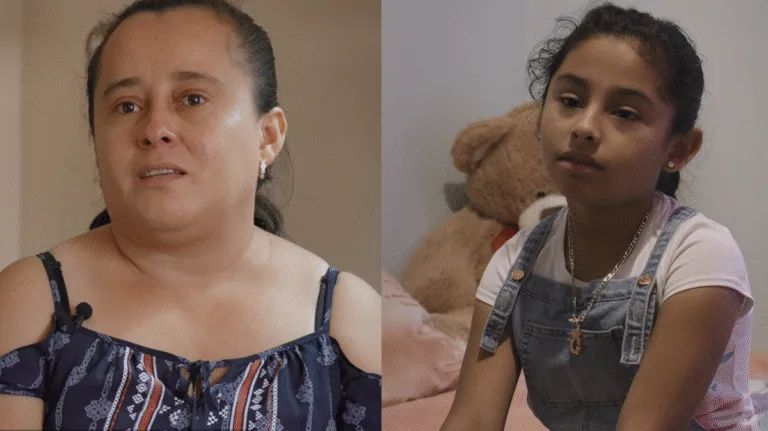
‘It’s All We Could Do: Cry’: A Honduran Mother and Daughter Describe Their Separation Under U.S. ‘Zero Tolerance’ Immigration Policy
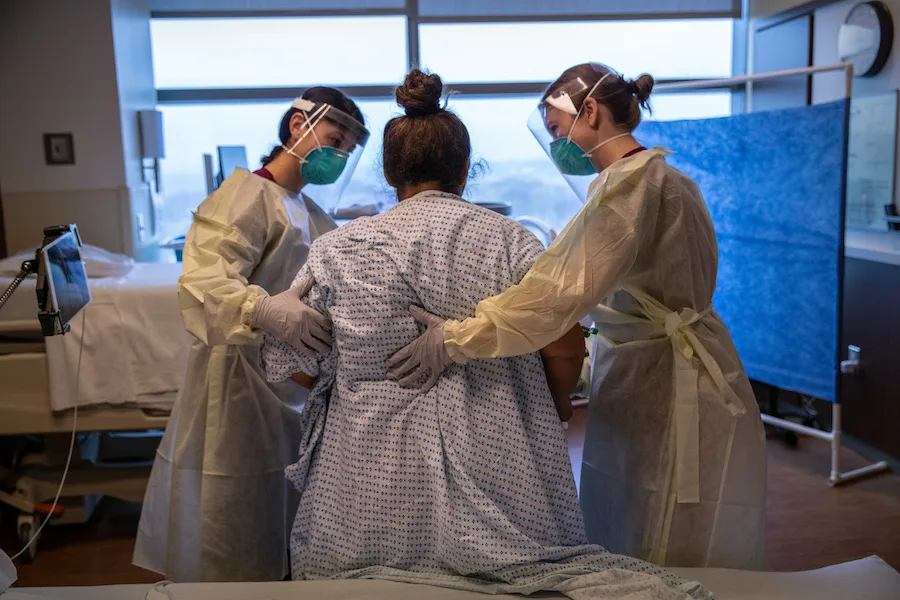
Love, Life & the Virus
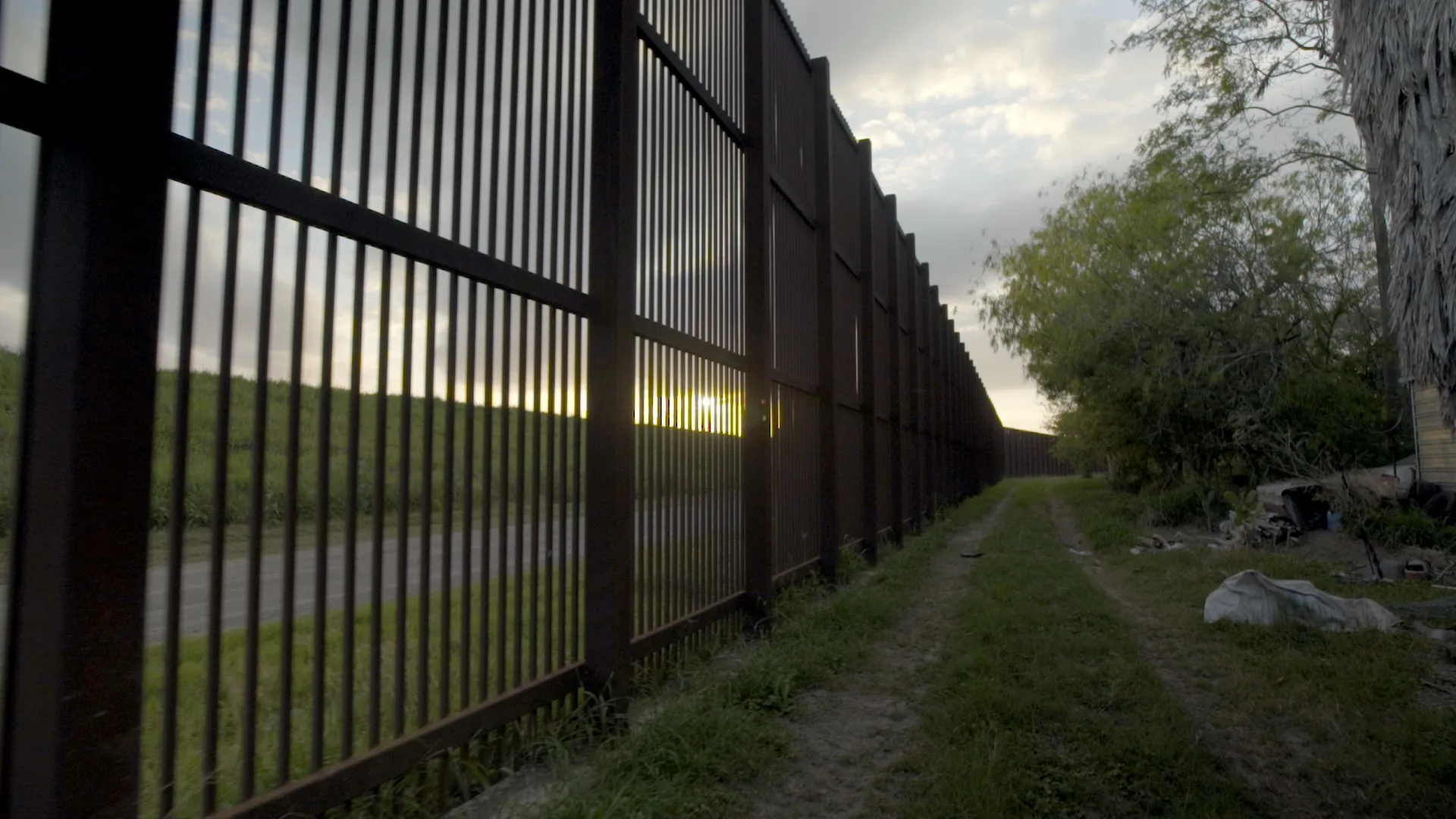
Separated: Children at the Border
Related Stories

‘It’s All We Could Do: Cry’: A Honduran Mother and Daughter Describe Their Separation Under U.S. ‘Zero Tolerance’ Immigration Policy


Separated: Children at the Border
Related Stories

‘It’s All We Could Do: Cry’: A Honduran Mother and Daughter Describe Their Separation Under U.S. ‘Zero Tolerance’ Immigration Policy


Separated: Children at the Border
ANAVELIS:
[Speaking Spanish] You make plans. But you can’t imagine what might happen on the road. I never imagined what was waiting for me. When I got there it became hell. A nightmare that has been tormenting me all these years.
When we arrived at immigration, they put us in a very cold place. They call it the icebox. Just to give me the news that they were separating families. She didn’t want to let go. The officers behind me were saying, “Let her go. Let her go.” She told me, “Mommy, I love you.” And those words still hurt, those words she said to me. And from there they took her away.
Chalmeca, Honduras
ANAVELIS:
[Speaking Spanish] I came back from there feeling traumatized. So, I spent about a year not leaving my house.
OSCAR GUERRA, Filmmaker:
I began talking to Anavelis in the summer of 2021.
[Speaking Spanish] Hi, Anavelis, how are you? Nice to meet you, even if it’s only by phone right now.
ANAVELIS [on phone]:
[Speaking Spanish] Yes, nice to meet you.
OSCAR GUERRA:
It was three years since she was separated from her daughter, Genesis, and sent back to Honduras. I was looking into the stories of families who had been separated at the border under the Trump administration’s tough immigration policies like Zero Tolerance. Many families had been reunited, but hundreds of parents like Anavelis were still living apart from their kids, looking for a way to get back to them.
ANAVELIS:
[Speaking Spanish] When they took my child from me, the other officers told me, “We don’t allow crybabies here.” You want a mother to be happy after taking her child away? And I said I didn’t want to cry, but it’s normal. It’s all we could do, cry.
I never stopped thinking about her—what she had for lunch, if she was warm enough, if she was safe at night. Those were my thoughts.
OSCAR GUERRA:
—one, two, three. Testing, one, two, three.
When I first met Genesis more than a year ago, she was living in Kentucky with her aunt Xiomara.
XIOMARA, Genesis’ aunt:
[Speaking Spanish] Sometimes she starts to cry and says, “Auntie, when is my mommy coming?”
“She will come,” I tell her. “Just wait.” But she understands a lot of things. It seems like she is already an adult, she understands a lot.
OSCAR GUERRA:
[Speaking Spanish] You told me you were with your mom and a man separated you. Tell me again about that.
GENESIS:
[Speaking Spanish] When I was separated from my mom, they sent me to different families. Each family they sent me to, I stayed with for a few days. And then they sent me to the last family. And then, when the time with that family was over, a young woman named Barbara picked me up and took me to the airport.
OSCAR GUERRA:
[Speaking Spanish] But you were very young. Do you remember all that?
GENESIS:
[Speaking Spanish] I was six years old.
OSCAR GUERRA:
[Speaking Spanish] They sent your mom back to Honduras. What did she say to you?
GENESIS:
[Speaking Spanish] That she loved me very much and that she was going to see me again. One day I spoke to her crying because I couldn’t see her.
OSCAR GUERRA:
[Speaking Spanish] And that time you cried, why did you cry?
GENESIS:
[Speaking Spanish] Because my mommy had already gone back to Honduras but I thought she was still here.
OSCAR GUERRA:
[Speaking Spanish] Why did you think she was here?
GENESIS:
[Speaking Spanish] Because first I thought they didn’t tell me they were going to send her to Honduras. They only told me that she had to go somewhere, but they didn’t tell me.
OSCAR GUERRA:
[Speaking Spanish] And you still didn’t know that your mommy had already gone back?
GENESIS:
[Speaking Spanish] I didn’t know, but now I do.
June 2018
OSCAR GUERRA:
Genesis was held in government custody for about a month before being released to go live with her father, José, who had come to the U.S. a few years earlier. They were together for seven months while Anavelis was trying to figure out what to do.
But soon José was deported.
ANAVELIS:
[Speaking Spanish] When José was detained, everything changed. And we were left alone, just the two of us in the house.
There was no peace for me because I wanted to be with her, because I didn’t want to give up. Because I didn’t want to come back to Honduras, because I left my home with her and came back without her. That’s all I could think about.
My interest was in being with her, to take care of her, and that was what I wanted.
OSCAR GUERRA:
By the time I was talking to Anavelis and Genesis, lawyers and activists were already working to try to help reunite families like them that were still separated.
CROWD [chanting]:
No hate, no fear, immigrants are welcome here! No hate, no fear—
Revolt, revolt, revolt!
OSCAR GUERRA:
The ACLU’s Lee Gelernt led the legal effort. He was behind the lawsuit demanding an end to the separations, and in 2018 the Trump administration was ordered to reunite families.
LEE GELERNT, ACLU Immigrants’ Rights Project:
Amazingly, they didn’t even keep records. When we wanted to reunite the families, we asked the administration, the Trump administration, for a list of the names. At one point, they said it will take two years for us to re-create the list. We will have to go manually through thousands of files because we simply didn’t keep track. That is beyond shocking.
OSCAR GUERRA:
After Gelernt’s lawsuit, many parents who were still in the U.S. got their children back. But those who were already out of the country, like Anavelis, were left waiting.
LEE GELERNT:
The Trump administration said to the judge, Well, if the parent’s already out of the country, if they’re going to be part of the case, we are not going to find these parents.
OSCAR GUERRA:
Gelernt helped put together a network of attorneys and investigators who spent years scouring Central America and elsewhere, tracking down hundreds of parents who had been deported without their kids.
FEMALE SPEAKER:
[Speaking Spanish] Do your know Georgina?
MALE SPEAKER:
[Speaking Spanish] She is here.
CATHLEEN CARON, Founder, Justice in Motion:
There were about 1,000 families who were deported. So some of the parents are currently separated, with a child in the United States and the parent back in the country of origin. And those parents want to come back to the United States to be with their kids.
OSCAR GUERRA:
I spoke to Cathleen Caron, a human rights lawyer who helped in the search for the parents.
CATHLEEN CARON:
When they were found, as part of the process, they were given the option do you want your child to be returned to you, or do you want your child to remain in the United States? So it was a very difficult choice these parents had to take.
GENESIS:
[Speaking Spanish] I like this TikTok.
OSCAR GUERRA:
That was the kind of choice that Anavelis and Xiomara struggled with.
XIOMARA:
[Speaking Spanish] Anavelis wanted the girl to be sent back, but I didn’t want to. I told them no because the girl had a better future here than there. Because many things happen over there.
OSCAR GUERRA:
[Speaking Spanish] So it was your job to convince her to stay here?
XIOMARA:
[Speaking Spanish] It was hard, because she cried, “Xiomara, send me the girl!” I gave her excuses and I told her, “There is no money for a ticket.” And “I’m afraid to send her.”
“Send her with someone,” she said. She begged me to send her, begged us to send her back. But we didn’t.
OSCAR GUERRA:
[Speaking Spanish] A difficult decision for you, isn’t it?
XIOMARA:
[Speaking Spanish] Yes, I even cried, but I didn’t want them to take her away. “Someday you will come back and see her,” I told her.
ANAVELIS:
[Speaking Spanish] So we spent all this time in suspense, waiting to see what would happen. I was told that she would be sent to me. But for one reason or another, it didn’t happen. It has been three and a half years of talking to lawyers who have kept me hopeful that we could get there.
OSCAR GUERRA:
In early 2021, they got their chance.
FEMALE NEWSREADER:
In a move to reverse what he calls the national shame of the previous administration, President Joe Biden—
MALE NEWSREADER:
Over three years have passed since the Trump administration started separating thousands of migrant children from their—
MALE NEWSREADER:
Today the president established a border task force that aims to reunite hundreds—
OSCAR GUERRA:
Two weeks after taking office, the Biden administration formed a task force that would help bring parents back to the U.S.
PRESIDENT JOE BIDEN:
With the first action today, we’re going to work to undo the moral and national shame of the previous administration that literally, not figuratively, ripped children from the arms of their families, their mothers and fathers, at the border, and with no plan, none whatsoever, to reunify the children who are still in custody and their parents.
OSCAR GUERRA:
The Department of Homeland Security was running the task force. Michelle Brané was put in charge.
MICHELLE BRANÉ, Exec. Dir., Family Reunification Task Force:
This really is an unprecedented operation, to be looking at harm that was done. And going back and really looking for the people involved and reunifying those families in order to provide them with the ability to be together and work forward from the harm that was inflicted.
OSCAR GUERRA:
Anavelis and José were among the first parents to be put on the task force list.
JOSÉ, Genesis’ father:
[Speaking Spanish] A lawyer contacted me that they were going to send us back to the United States so that we could be reunited with Genesis.
ANAVELIS:
[Speaking Spanish] And now, finally we are at the end.
Genesis, how do you feel now that you are going to see us soon?
GENESIS [on phone]:
[Speaking Spanish] Happy, happy.
JOSÉ:
[Speaking Spanish] It’s not long now, my girl.
GENESIS [on phone]:
[Speaking Spanish] August.
OSCAR GUERRA:
But August passed, and no reunion took place.
ANN GARCIA, Immigration attorney:
Every adult has one in—
OSCAR GUERRA:
I talked to Ann Garcia, a pro bono lawyer who was helping the family navigate the bureaucracy in both the U.S. and Honduras.
ANN GARCIA:
That’s what we thought. We thought she would be back a month ago. But sometimes you just get these—these issues just present themselves.
In Anavelis’ case, at this point, she has her ID. The hold up really is with the Honduran government’s processing of her husband’s ID and passport. Of course, he had an ID, but there was an error on it, a spelling error. That process has been very frustrating, to be completely honest.
GENESIS:
[Speaking Spanish] Sometimes I call her “Mommy” by accident. And I call my mommy “Auntie.” I think I get confused because I have lived with my aunt more and not with my mommy.
So cold.
XIOMARA:
[Speaking Spanish] I was thinking, I am here with her, but when Anavelis comes, she will no longer be with me. And she is the joy of my house.
Sometimes I think it’s better that [Anavelis] doesn’t come, that [Genesis] stays with me. But she needs her mom and dad together.
OSCAR GUERRA:
[Speaking Spanish] How often does Genesis come here?
XIOMARA:
[Speaking Spanish] On Saturdays I bring her. Because she says, “Auntie, I’m going to work with you,” so I bring her with me. Sometimes she stays in the car there, in the boss’s car. Or if not in the car, she hangs out here with us.
What I tell her is, be someone in life, right? I don’t want her to work like me. You study so you can have a good future, I tell her. Because look how I work. And why, do you think? Because I did not study.
Back in Honduras, no, she cannot achieve her dreams because it is very difficult. But here, yes. Here, yes.
OSCAR GUERRA:
Over several months, Anavelis and José made multiple trips to the city of San Pedro Sula to try to fix the spelling error in José’s passport.
ANAVELIS:
[Speaking Spanish] We finally have José’s passport. Thank God.
ANN GARCIA:
You think when you start a case, and you hope really that it will take no time at all for it to be approved. Certainly in conversation with these families, I try to make them aware that the process could take several months, that there’s no guarantee that they’ll be approved. That the government looks at each of these cases individually.
And so I think, of course, Genesis, she was put in a position where she had to be resilient—
GENESIS:
[Speaking Spanish] Hi, Mommy.
ANN GARCIA:
—and she was.
ANAVELIS:
[Speaking Spanish] Hello.
ANN GARCIA:
She went to school.
ANAVELIS:
[Speaking Spanish] Princess.
ANN GARCIA:
She got used to her new life.
ANAVELIS:
[Speaking Spanish] We love you very much and we miss you.
ANN GARCIA:
Used to being mothered by phone and by video calls from Anavelis, who was in Honduras.
ANAVELIS:
[Speaking Spanish] And we hope that in about two, three weeks we can be together, what we have been wishing for all these three years.
GENESIS:
[Speaking Spanish] I miss you, too. Tell my daddy I love him, too.
ANAVELIS:
[Speaking Spanish] Yes, he knows that you love him very much.
OSCAR GUERRA:
[Speaking Spanish] How do you feel when you talk to your mom?
GENESIS:
[Speaking Spanish] I feel sad because sometimes she tells me that I’m going to see her again, but I don’t think so.
OSCAR GUERRA:
[Speaking Spanish] What aren’t you sure about?
GENESIS:
[Speaking Spanish] That she is going to come.
OSCAR GUERRA:
[Speaking Spanish] You don’t think she’s coming? Why?
GENESIS:
[Speaking Spanish] Because they said that in August they were going to come and they didn’t come. That’s why.
OSCAR GUERRA:
Once José got his passport corrected, things happened quickly. Within weeks, he and Anavelis were told to come to the capital, Tegucigalpa, to be photographed and fingerprinted.
ANAVELIS:
[Speaking Spanish] I was making dinner and suddenly I got the call from this lady, and it caught me by surprise because I didn’t think I was going to leave so soon. The lawyer told us to come at once, with suitcases and everything ready to travel to the United States.
OSCAR GUERRA:
Like other families being reunited through the Biden administration’s task force, Anavelis and José were given documents allowing them to live and work in the U.S. for three years while applying for asylum or some other more permanent status.
MICHELLE BRANÉ:
We really were looking for what we could do within our legal authorities to provide families with some way to be reunified physically, not just in their home country but here in the United States. Because in many of these cases the children are here in the United States and the parent has been removed. And in doing so, we decided upon humanitarian parole and parole in place. What that provides is legal authority for a recipient to be in the country during a stated period of time.
OSCAR GUERRA:
What happens to these families after that limit?
MICHELLE BRANÉ:
So at the end of three years, families can request an extension of parole, so that will be available to families. And in the meantime we encourage Congress and have asked Congress to help us in providing for some legal status for these families, and we welcome their action on that.
OSCAR GUERRA:
For Anavelis and José, it had been nearly six months since they started their application to come to the U.S. By December, they were set to leave.
ANAVELIS:
[Speaking Spanish] It is very hard to say goodbye. It was hard for José’s parents, too. Because they have been like second parents to me.
JOSÉ’S MOTHER:
[Speaking Spanish] Oh, my precious love. Take care of yourself, daughter.
JOSÉ:
[Speaking Spanish] In the United States, you don’t know how much time will pass without seeing them, right? And it’s worse because we are very close.
OSCAR GUERRA:
They headed to San Pedro Sula to wait for their flight to the United States.
ANAVELIS:
[Speaking Spanish] Yes, I’m nervous. We have been planning this for so long, it’s exciting. So yes, I’m nervous.
Good morning.
XIOMARA:
[Speaking Spanish] Genesis. Wake up.
GENESIS:
I’m afraid that something might happen to them and they might not come. When they get to the airport, they might send them back to Honduras.
XIOMARA:
[Speaking Spanish] This is where we waited for you, that time.
GENESIS:
[Speaking Spanish] Right here? In this same place?
XIOMARA:
[Speaking Spanish] You don’t remember?
GENESIS:
[Speaking Spanish] Here? Is this the same spot?
It’s 5:03.
ANAVELIS:
[Speaking Spanish] I really don’t know what’s going to happen. Am I going to freeze? Or am I going to react in a different way?
GENESIS:
Emily, touch my heart. It’s beating so fast. I don’t know if you can feel it, but—
EMILY:
I can’t!
GENESIS:
Oh, my God.
JOSÉ:
[Speaking Spanish] There they are!
ANAVELIS:
[Speaking Spanish] My beautiful girl. [Cries]
JOSÉ:
[Speaking Spanish] How are you, my girl? Now, you are going to be with us. [Laughs]
XIOMARA:
[Speaking Spanish] You see? It happened.
ANAVELIS:
[Speaking Spanish] My miracle happened.
OSCAR GUERRA:
Seven months later, in the summer of 2022, I went back to Kentucky to see how the family was adjusting to their new life.
ANAVELIS:
[Speaking Spanish] I have adjusted well, thank God. There is always a bit of sadness because you left your whole family there. And sometimes you think about it all.
GENESIS:
When I teach her English, I tell her to repeat the words without me and she does them good.
ANAVELIS:
Three, four, five.
OSCAR GUERRA:
[Speaking Spanish] And tell me about your work, what are you doing, what do you do?
ANAVELIS:
[Speaking Spanish] We have a few different jobs. Some days, it’s carpentry, some days, concrete, some days, painting. I work Monday through Friday. But on Saturday I don’t, so I can be with Genesis.
It’s a happy ending. But we don’t know what is going to happen beyond that. I’m focused only on what I’m doing, and that I’m with them. And that is the most important thing for us, not to be separated.
The debt that I owe Xiomara that I think I will never be able to repay is that she took care of Genesis as if she were her own daughter.
XIOMARA:
[Speaking Spanish] I miss her. But thank God she is finally with her parents, which is the most important thing for her.
OSCAR GUERRA:
As of November 2022, the Biden administration’s task force had reunited more than 540 children with their parents. But hundreds still remain separated.
ANAVELIS:
[Speaking Spanish] Sometimes I can’t believe that I’m here. I have cried, not out of sadness, but it makes me feel emotional. It is incredible that I can be here and that we are here.
WRITTEN, PRODUCED & DIRECTED BY Oscar Guerra Nunez
SENIOR PRODUCER Frank Koughan
EDITED BY Jon Neuburger Nelson Ryland
PRINCIPAL PHOTOGRAPHY Oscar Guerra Nunez
CAMERA Gerardo Aguilar Jonathan Iturriaga-Dasilva Patrick Sheehan Eleanor Walton Andrew Hinton
ADDITIONAL CAMERA Jesse Abdenour
ASSISTANT CAMERA Isabella Martinez
SOUND Giuseppe Cappello Jung Do Choi Oscar Guerra Nunez Evan Raymond Spitzer
DRONE Gerardo Aguilar Edgar Epigmenio Diaz Cruz Oscar Guerra Nunez
FIELD PRODUCERS Jesse Abdenour Claudia Mendoza Kate McMahon Paula Moura Mario Alberto Gonzalez Moreno
PRODUCTION ASSISTANTS Daniel Aguilar Marvin Valladeres
PRODUCTION MANAGER Callie T. Wiser
ARCHIVE PRODUCER Lindsey Schneider
ARCHIVE RESEARCHER Izze Gibson
ONLINE EDITOR/COLORIST Jim Ferguson
SOUND MIX Christopher D. Anderson C.A.S.
BUSINESS MANAGER Helen Yung
ASSISTANT EDITORS Christine Giordano Alex LaGore Timothy Meagher Peter Norton
LEGAL John Ives
TRANSLATION Rosa Tuiran
INTERNS (SYRACUSE UNIVERSITY) Shantel Guzman Patrick Linehan Estheralice Lopez Adriana Rozas Rivera Maranie Staab Cole Strong
INTERNS (UNIVERSITY OF CONNECTICUT) Christopher Orrico Andrea Blanco Justin Locasio
DRIVER Evelin Ramos
ARCHIVAL MATERIALS Anavelis and Jose AP Archive Getty Images Reuters via Pond5
ADDITIONAL MATERIALS KFMB-TV CBS8 NBC News
SPECIAL THANKS Israel Balderas The University of Oregon School of Journalism and Communication
ORIGINAL PRODUCTION FUNDING PROVIDED BY Corporation for Public Broadcasting, Abrams Foundation, John D. and Catherine T. MacArthur Foundation, Park Foundation, Heising-Simons Foundation, FRONTLINE Journalism Fund with major support from Jon and Jo Ann Hagler through the Jon L. Hagler Foundation
FOR FRONTLINE
DIRECTOR OF POST PRODUCTION Megan McGough Christian
SENIOR EDITOR Barry Clegg
EDITOR Brenna Verre
EDITOR Joey Mullin
ASSISTANT EDITORS Christine Giordano Alex LaGore Tim Meagher Peter Norton
PRODUCTION ASSISTANT Stevie Jones
FOR GBH OUTPOST SENIOR DIRECTOR OF PRODUCTION TECHNOLOGY Tim Mangini
INTERNS Joe Adams Joanna Hou Hannah Loss Daejah Woolery Olivia Yarvis
FRONTLINE / EMMA BOWEN FELLOW Sharon Boateng
SERIES MUSIC Mason Daring Martin Brody
EXECUTIVE ASSISTANT Will Farrell
DIRECTOR OF IMPACT AND EXTERNAL RELATIONS Erika Howard
DIGITAL WRITER & AUDIENCE DEVELOPMENT STRATEGIST Patrice Taddonio
PUBLICITY & AUDIENCE ENGAGEMENT COORDINATOR Julia Heffernan
DIGITAL PRODUCER / EDITOR Tessa Maguire
MANAGER, PUBLIC RELATIONS AND COMMUNICATIONS Anne Husted
PODCAST PRODUCER Emily Pisacreta
ARCHIVES & RIGHTS MANAGER John Campopiano
BUSINESS ASSOCIATE Sean Gigliotti
CONTRACTS CONSULTANT Junshi Lu
FOR GBH LEGAL Eric Brass Suzy Carrington Jay Fialkov
SENIOR CONTRACTS MANAGER Gianna DeGiulio
BUSINESS MANAGER Sue Tufts
BUSINESS DIRECTOR Mary Sullivan
SENIOR DEVELOPER Anthony DeLorenzo
LEAD DESIGNER FOR DIGITAL Dan Nolan
FRONTLINE/COLUMBIA JOURNALISM SCHOOL FELLOWSHIPS TOW JOURNALISM FELLOW Chantelle Lee
ABRAMS JOURNALISM FELLOW Julia Ingram
FRONTLINE/NEWMARK JOURNALISM SCHOOL AT CUNY FELLOWSHIP TOW JOURNALISM FELLOW Bruce Gil
FRONTLINE/FIRELIGHT INVESTIGATIVE JOURNALISM FELLOWS Cristina Ibarra Ursula Liang
EDITORIAL CONSULTANTS Lauren Prestileo Callie T. Wiser
SENIOR DIGITAL PRODUCER / EDITOR Miles Alvord
HOLLYHOCK FILMMAKERS IN RESIDENCE Christina Avalos Marcia Robiou
SERIES PRODUCER AND EDITOR Michelle Mizner
DEPUTY DIGITAL EDITOR Priyanka Boghani
DIGITAL EDITOR Jennifer Wehunt
EDITORIAL COORDINATING PRODUCER Katherine Griwert
POST COORDINATING PRODUCER Robin Parmelee
SENIOR EDITOR AT LARGE Louis Wiley Jr.
FOUNDER David Fanning
SPECIAL COUNSEL Dale Cohen
DIRECTOR OF AUDIENCE DEVELOPMENT Maria Diokno
SENIOR PRODUCERS Dan Edge Frank Koughan
SENIOR PRODUCER, SPECIAL PROJECTS & INNOVATION Carla Borrás
SENIOR EDITOR & DIRECTOR, LOCAL JOURNALISM Erin Texeira
SENIOR SERIES PRODUCER Nina Chaudry
SENIOR EDITOR, INVESTIGATIONS Lauren Ezell Kinlaw
MANAGING EDITOR Andrew Metz
MANAGING DIRECTOR Janice Hui
EXECUTIVE PRODUCER & EDITOR-IN-CHIEF Raney Aronson-Rath
A FRONTLINE production with Five O’Clock Films in association with Guerra Productions, Syracuse University’s S.I. Newhouse School of Public Communications, and University of Connecticut
© 2022 WGBH Educational Foundation All Rights Reserved.
FRONTLINE is a production of GBH which is solely responsible for its content.
Explore
Policies
Teacher Center
Funding for FRONTLINE is provided through the support of PBS viewers and by the Corporation for Public Broadcasting, with major support from Ford Foundation. Additional funding is provided the Abrams Foundation, Park Foundation, John D. and Catherine T. MacArthur Foundation, Heising-Simons Foundation, and the FRONTLINE Trust, with major support from Jon and Jo Ann Hagler on behalf of the Jon L. Hagler Foundation, and additional support from Koo and Patricia Yuen. FRONTLINE is a registered trademark of WGBH Educational Foundation. Web Site Copyright ©1995-2025 WGBH Educational Foundation. PBS is a 501(c)(3) not-for-profit organization.





